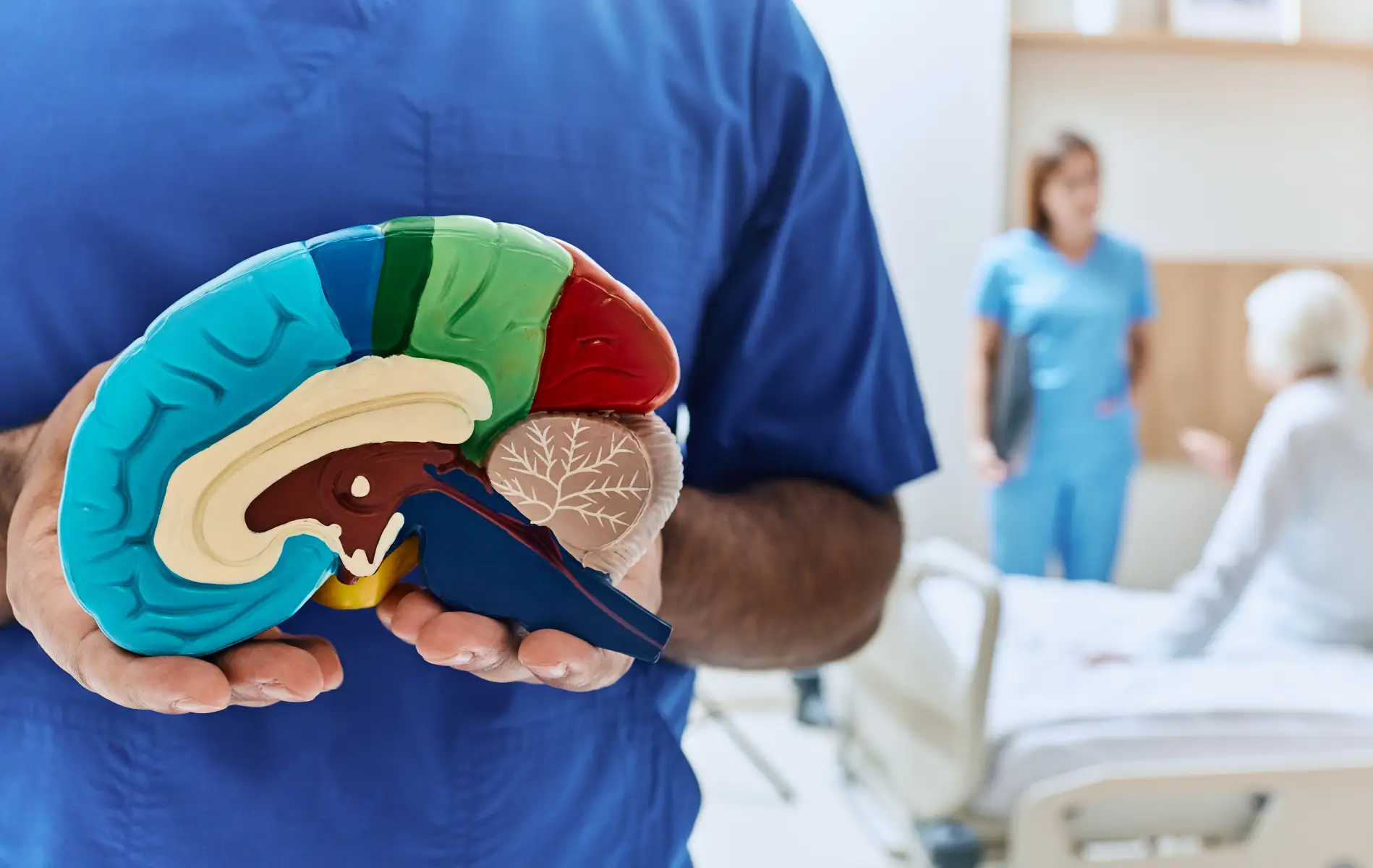Trauma has a way of lingering within the mind and body long after the distressing event has passed. While some individuals may be acutely aware of how significant events have affected their lives, others may not fully realise the impact that seemingly minor experiences have had on their emotional or psychological well-being. Trauma is not always the result of a catastrophic event; even seemingly trivial or commonplace incidents, particularly during childhood or adolescence, can leave a lasting impression.
The effects of unresolved trauma can manifest subtly yet profoundly in how we think, feel, and behave. This article explores ten signs that you may still be traumatised by past events, alongside examples of life experiences that may not, at first glance, appear traumatic, yet may have adversely affected you.
1. Intrusive Thoughts or Memories
One of the most obvious signs of unresolved trauma is the presence of intrusive thoughts or flashbacks. These can force an individual to relive distressing memories repeatedly, often without warning. While some people associate trauma with major events such as accidents or abuse, even subtler experiences can leave an imprint on your subconscious mind, triggering these feelings.
Related Experiences:
- Childhood Bullying: Being persistently teased or embarrassed during school years can leave an individual with feelings of inadequacy and self-doubt that surface long after the events themselves.
- Critical Parenting: Consistent criticism or lack of emotional validation by caregivers during childhood can give rise to perfectionism or a fear of failure.
- Medical Interventions: Illnesses or invasive medical treatments during childhood, even if necessary, may have felt overwhelming or distressing and could lead to anxiety or mistrust.
In adulthood, these experiences may unexpectedly resurface through unwelcome thoughts or associations, leaving you feeling stuck in the past.
2. Avoidance Behaviour
Avoidance is a common response to trauma, allowing individuals to protect themselves by steering clear of people, places, or topics that remind them of their distressing experiences. While this mindset serves as a defence mechanism, it can inadvertently restrict emotional growth and connection with others.
Related Experiences:
- Social Exclusion: Being ostracised during childhood or adolescence may contribute to avoiding group interactions in adulthood for fear of rejection or ridicule.
- Public Humiliation: Instances such as being shamed or mocked in front of others may lead to reluctance in participating in activities that involve public speaking or open self-expression.
Such avoidance may feel protective, but it often becomes a barrier to leading a full and open life.
3. Hypervigilance
Unresolved trauma often keeps the brain in a continuous state of alertness, making individuals perceive potential threats, even in ordinary situations. This hypervigilance can lead to increased anxiety, restlessness, and exhaustion.
Related Experiences:
- Unpredictable Households: Growing up in a chaotic or volatile environment, where emotions or situations quickly escalated, may result in a constant need to monitor others’ moods or predict outcomes.
- Witnessing Conflict: Experiencing ongoing arguments or hostility, such as parental disputes, can make individuals overly sensitive to tension or interpersonal conflict.
Living in this persistent state of readiness can be emotionally and physically draining, leading to stress-related health issues over time.
4. Emotional Numbness
Some individuals experiencing unresolved trauma may not feel overwhelmed by emotions but, instead, completely detached from them. Emotional numbness serves as the body’s way of protecting itself, erecting barriers to shield against intense feelings. However, this detachment can hinder a connection with oneself and others.
Related Experiences:
- Emotionally Dismissive Environments: Growing up in a household where emotions were ignored or trivialised may lead to emotional disconnection as an adult.
- Long-Term Illness or Hospitalisation: Early-life experiences of medical treatment may leave individuals conditioned to ignore their feelings, focusing instead on survival.
Numbness often creates a profound sense of isolation, even to the detriment of relationships or personal fulfilment.
5. Emotional Dysregulation
Unresolved trauma frequently interferes with a person’s ability to manage emotions. Situations that would typically warrant a minor response may instead provoke disproportionate anger, sadness, or fear.
Related Experiences:
- Being Publicly Criticised: Having experienced shame or embarrassment in social or academic settings may cause intense reactions to perceived judgement or failure.
- Home Environment of Anger or Punishments: Growing up in a household where explosions of anger were common may result in exaggerated emotional responses to minor frustrations in adulthood.
Emotional dysregulation can create challenges in both personal and professional relationships, as reactions may be misconstrued or misunderstood by others.
6. Persistent Guilt or Shame
Trauma survivors often carry significant guilt or shame. This may not always logically align with their experiences, as these emotions often stem from internalised blame, particularly when the individual was powerless to change the situation at the time.
Related Experiences:
- Harsh Punishments During Childhood: Being unfairly punished or told you were a disappointment may instil a sense of inherent failure.
- Failing Expectations: Being subjected to high expectations by parents or teachers, without room for mistakes, can foster shame when falling short.
Those who experience such feelings may find themselves hypercritical of their actions and hesitant to pursue new opportunities.
7. Physical Symptoms or Chronic Pain
Trauma leaves traces on the body as well as the mind. Individuals with past traumas often experience unexplained physical symptoms, such as chronic tension and pain, that cannot easily be attributed to a medical condition.
Related Experiences:
- Childhood Illness or Injury: Periods of childhood illness, especially if they caused isolation or fear, may result in recurring or unexplained physical discomfort later in life.
- Exposure to Physical Discipline: Repeated exposure to physical punishment may be stored in the body as pain or rigidity, even when there are no current sources of harm.
When the body stores trauma in this way, it can lead to feelings of helplessness or frustration, as conventional medical treatment may not provide adequate resolution.
8. Issues with Trust in Relationships
A lack of trust is often rooted in prior experiences of betrayal, abandonment, or neglect. Interpersonal trauma may develop over time and leave survivors deeply uncertain of others’ intentions.
Related Experiences:
- Friendship Betrayal: Losing trust in childhood due to a peer betraying your confidence or aligning with bullies may result in guarded relationships as an adult.
- Parental Emotional Unavailability: When caregivers provided inconsistent or absent emotional support, it can instil a fear of forming close emotional attachments.
For many, intimate relationships, whether romantic or platonic, can feel risky or even overwhelming.
9. Poor Concentration or Decision-Making
Unresolved trauma can cloud the mind’s ability to focus or evaluate choices effectively. Trauma survivors may find themselves struggling to think clearly or second-guessing their decisions, even in low-pressure circumstances.
Related Experiences:
- Frequent Childhood Instability: Growing up in an environment with constant change, such as multiple school moves or changing caregivers, can disrupt long-term planning and focus.
- Pressure to Perform Academically: Failing to meet academic standards under critical parents or teachers may contribute to a pervasive fear of making the wrong decision.
This tendency to overanalyse or procrastinate can significantly hinder both personal and professional progress.
10. Self-Destructive Behaviours
In some cases, unresolved trauma may lead to self-sabotaging behaviours. While these strategies may provide temporary relief from pain, they often exacerbate the individual’s emotional turmoil in the long term.
Related Experiences:
- Witnessing Addiction: Having adult caregivers rely on alcohol or drugs to cope may normalise self-destructive behaviours.
- Feelings of Worthlessness: Early experiences of neglect or ridicule may create a subconscious belief that your well-being is unimportant or undeserved.
Acknowledging such behaviours is a vital first step towards understanding and breaking harmful cycles.
Moving Forward
If you identify with any of the signs detailed above, it may indicate that unresolved trauma is affecting your life. However, recognising its presence is the first step towards healing. Even experiences that might have seemed minor at the time, such as bullying, exclusion, or illness, can leave profound emotional imprints.
Steps Towards Recovery:
- Seek Professional Support: Therapists trained in trauma recovery can help guide you through the healing process.
- Create Safe Spaces: Build environments and relationships where you feel safe, seen, and validated.
- Practise Self-Care: Develop practices that help you regulate emotions, such as mindfulness, journaling, or gentle movement exercises.
Trauma does not have to define your life. By recognising its impact and intentionally working towards healing, you can create a future grounded in resilience, confidence, and emotional balance.










